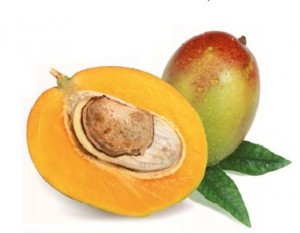African Mango
Other Names : Irvingia gabonensis, Agbono, Bread Tree, Bush Mango, Dika Nut, Dikanut, Dikka, Duiker Nut, Etima, Irvingia, Irvingia barteri, Irvingia gabonensis, Kaka, Mangifera gabonensis, Manguier Sauvage, Odika, Ogbono, Wild Mango.
Irvingia gabonensis is a tree, native to West Africa. The fruit is similar to a mango and is used for food. The seeds are used to make medicine.
Special Precautions of African Mango
Irvingia gabonensis is POSSIBLY SAFE for adults when a crude seed extract is taken for up to 4 weeks, or when a specific standardized seed extract called IGOB131 is used for up to 10 weeks. The only side effects reported are flatulence, headaches, and sleep problems.
The benefits of African Mango are
The West African mango is grown in the Cameroon rain forest of Africa and is commonly referred to as wild mango or bush mango. The extraordinary health benefits do not come from the sugary fruit but instead from the seed extract, which contains an abundance of healthy fats and fiber.
- Leptin Resistance : Scientists believe the African Mango seed extract acts to powerfully enhance leptin sensitivity. Leptin is a hormone released from fat cells that interacts with specific receptor sites in the hypothalamus of the brain to stimulate fat burning and feelings of satiety. An inflammatory diet and lifestyle creates a surge of C reactive protein, which damages the sensitive leptin receptor sites in the hypothalamus. This creates a state of Leptin Resistance, which leads to increased hunger, weight gain and obesity. The African mango seems to lower C-reactive protein which enhances leptin sensitivity. This improves overall satiety and turns on the fat burning switch. Additionally, it increases a hormone called adiponectin, which improves glucose and fat metabolism. Adiponectin is also released by fat cells and acts on cells to improve insulin sensitivity. Increased levels of this hormone are associated with lower body fat percentage.
- High cholesterol. Some small studies show that Irvingia gabonensis seed extracts might reduce bad cholesterol levels and increase good cholesterol levels in people who are overweight. But this research is low quality.
- Obesity. Some small studies show that Irvingia gabonensis seed extracts might help reduce weight in people who are overweight, especially if combined with a low-calorie diet. But this research is poor quality. A small study published in 2008 found that taking a combination of Cissus Quadrangularis and Irvingia gabonensis (also called African Mango) for ten weeks helped promote weight loss in obese or overweight adults. The herbal formula also appeared to improve participants' cholesterol levels.
- Diabetes.
